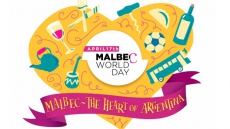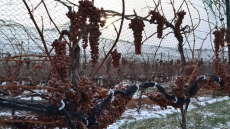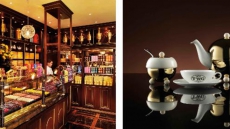It is one of the most popular styles of beer in the world, but that also makes pale ales one of the most diverse.
When Steam Whistle Brewing set out to expand from its flagship pure pilsner, it wanted to make sure of two things: that it maintained its commitment to the strict tenets of the Bavarian Purity Act of 1516 and that it produced a pale ale unique in the category that while drawn from its ancestors can stand on its own as a Canadian creation.
“Our Pale Ale is hop forward but still balanced, it’s crisp and highly drinkable,” says Erica McOustra, Head Brewer at Steam Whistle. “There may be confusion about what type of Pale Ale it is, but it’s a Canadian Pale Ale. It does not fit the British or American Pale Ale substyles, but takes inspiration from each.”
A pale ale is a general term for beers made with a pale malt intended to provide a more balanced malt-to-hop ratio, and is made through a warmer fermentation process than lagers.
The birth of the pale ale is believed to be in early 18th century England. The use of lighter malts resulted in a lighter beer and a lighter flavour than styles being brewed at the time that allowed more hop flavours to come through. The beers were also known as “bitters” and are characterized as having a bitter impression, but can also be malty and aromatic.
From there, the pale ale began to branch out, with several sub-styles now in the market. But what makes them different?
• A direct descendant of the original pale ale, a British Pale Ale is nicely balanced, brewed with a robust and nutty malt with refined hops that are earthy and floral.
• The India Pale Ale was born about a century after the pale ale. British colonials in India wanted beer from home, and to preserve it on the long trip a pale ale was made with more alcohol and more hops, giving us the hoppy and bitter taste characteristic of an IPA.
• Right around 1980, American brewers began experimenting with a pale ale using American hops. It resulted in an American Pale Ale that is cleaner and hoppier than some of its cousins, but also has more of a piney, fruity flavour than what you will find in a British pale ale.
• Steam Whistle’s interpretation of a Canadian Pale Ale is less bitter, making it more approachable and smooth than some other pale ales. While hop forward, particularly compared to its pilsner sister, Steam Whistle Pale Ale is not as hoppy as an American pale ale. That makes it easy drinking and enjoyable.





